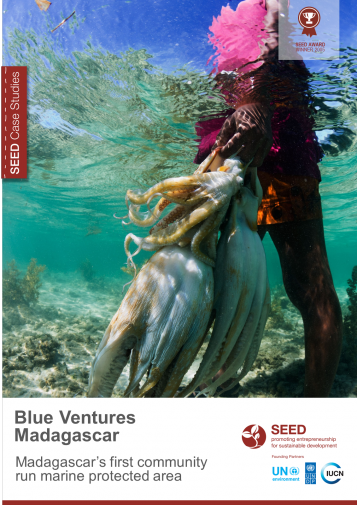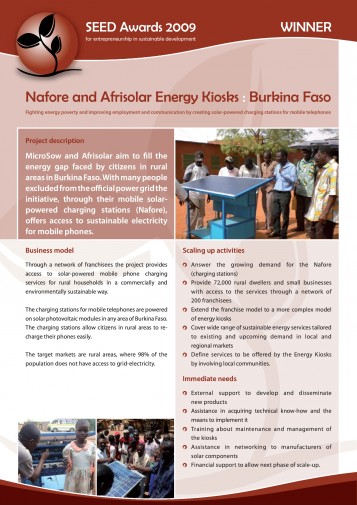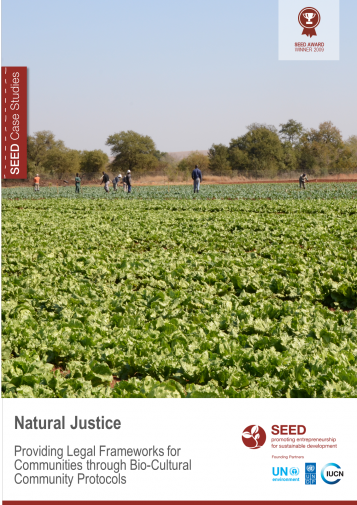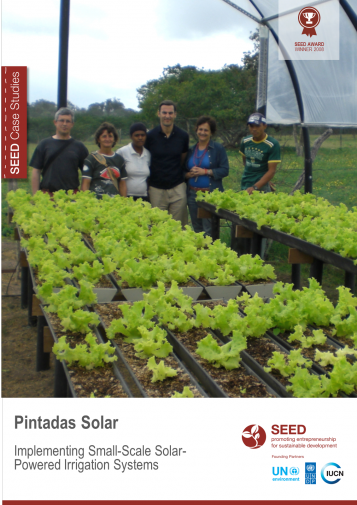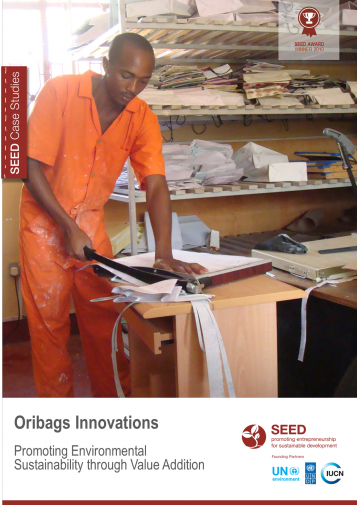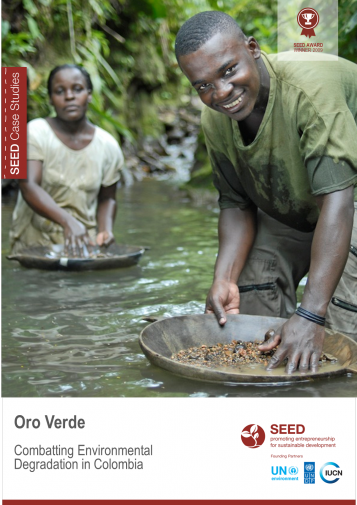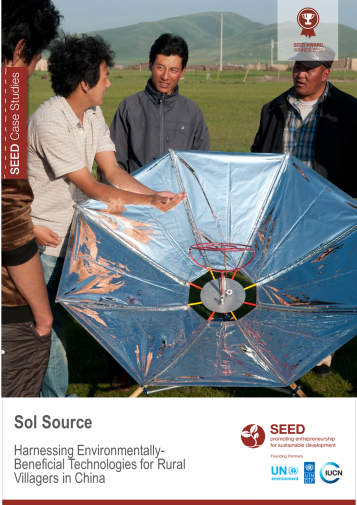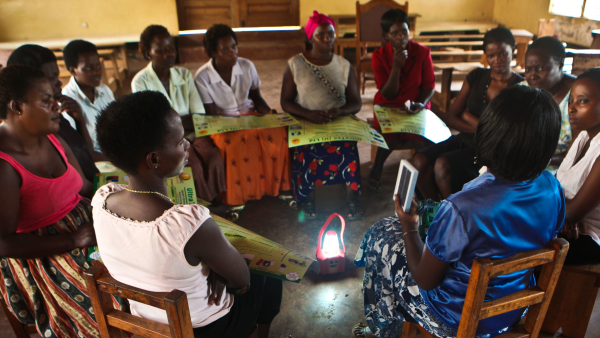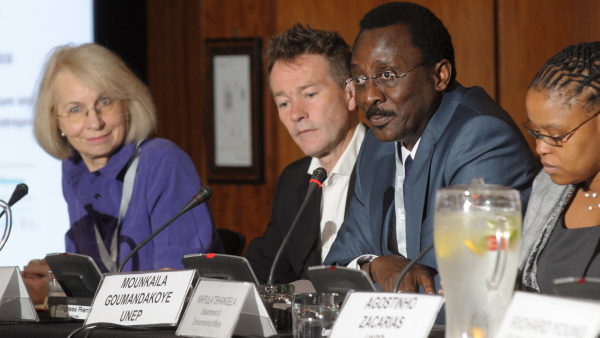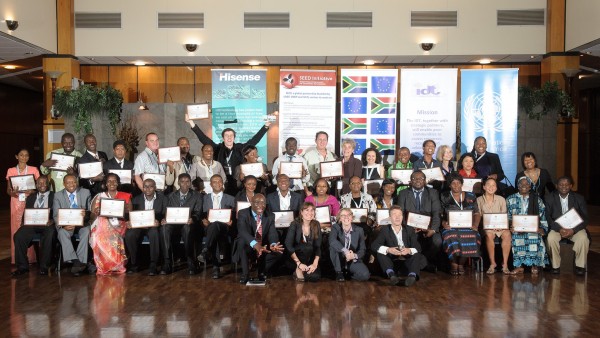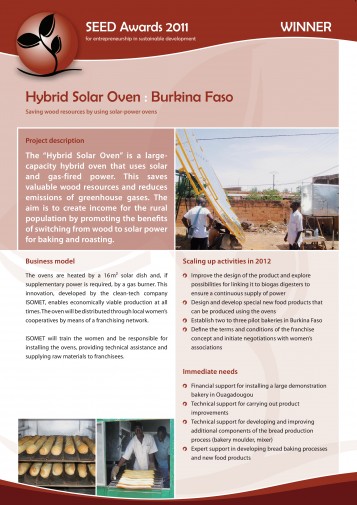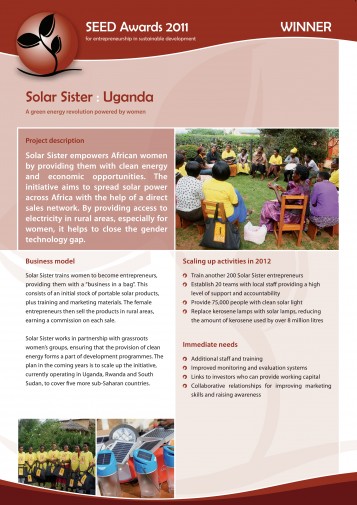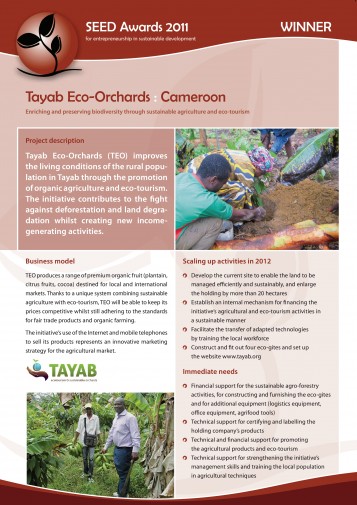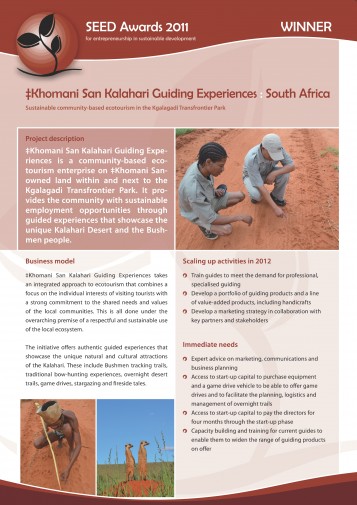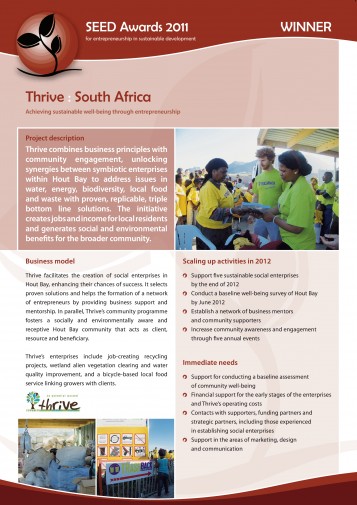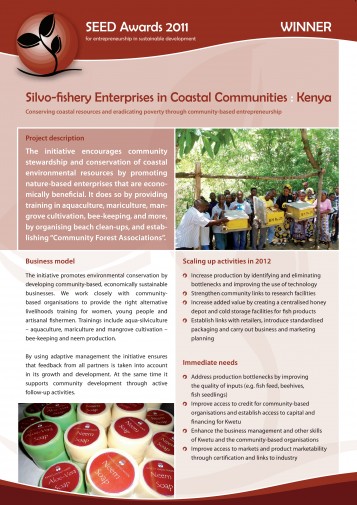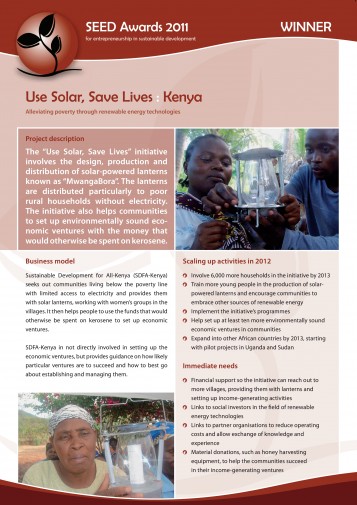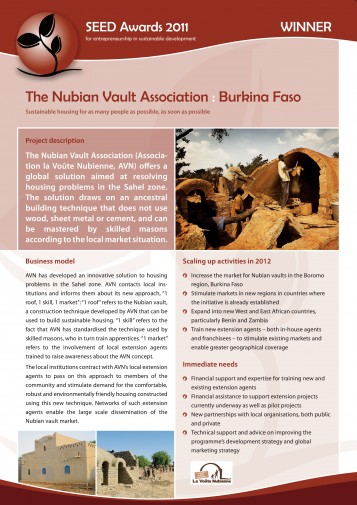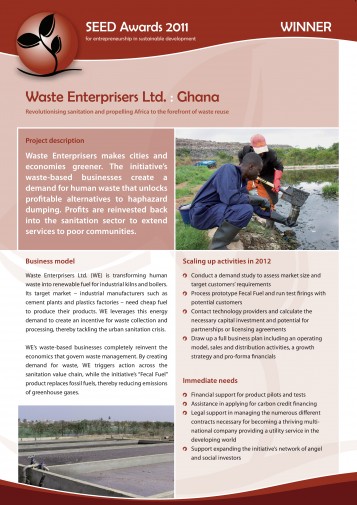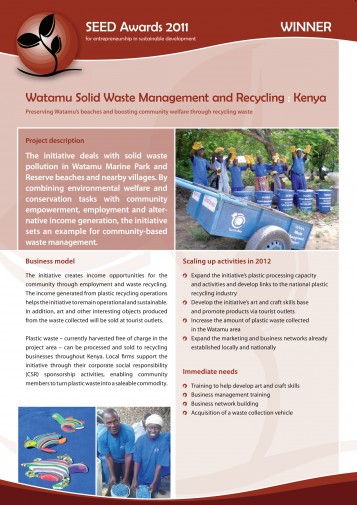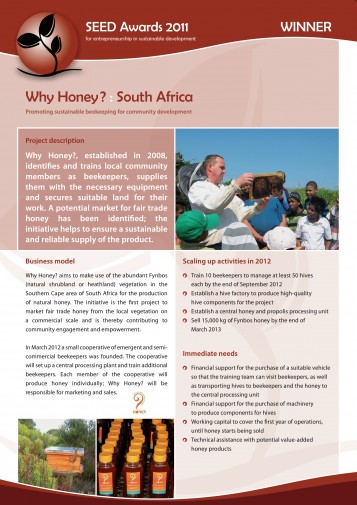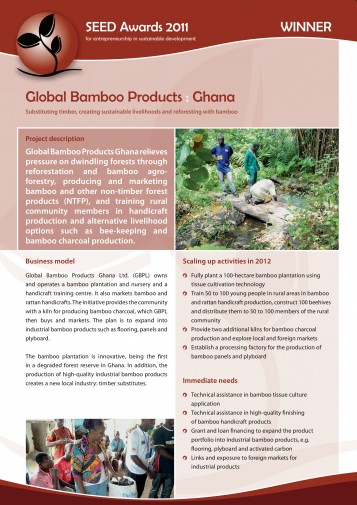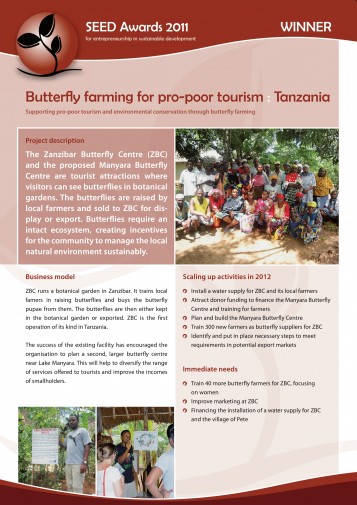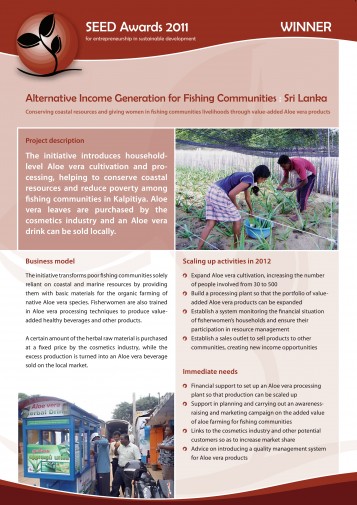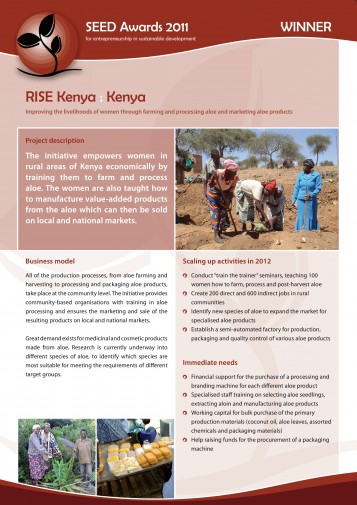Case Study: Blue Ventures
Published: 07 September 2012
“Madagascar’s first community-run marine protected area” is a partnership between local people, research institutes, NGOs and a commercial fishing company and focuses on marine conservation and sustainable livelihoods along the southwest coast of Madagascar. Read more
SDGs:









Case Study: Nafore and Afrisolar Energy Kiosks
Published: 07 September 2012
The Nafore and AfriSolar Energy Kiosks were created to address rural electrification challenges in Burkina Faso. Read more
SDGs:







Case Study: Natural Justice
Published: 07 September 2012
Bio-cultural protocols (BCPs) are tools that facilitate culturally-rooted participatory decision-making processes within communities with the aim of asserting their rights to their communally managed lands and knowledge. Read more
SDGs:











Case Study: Pintadas Solar
Published: 07 September 2012
Pintadas Solar creates sustainable and replicable models geared towards improving livelihoods and climate resilience in areas where agriculture and pasture is the main economic activity. Read more
SDGs:









Case Study: Oribags Innovations
Published: 07 September 2012
Oribags Innovations (U) Ltd is a Ugandan private enterprise which makes hand-made paper bags, printing paper and jewellery from agricultural wastes. Read more
SDGs:









Case Study: Oro Verde
Published: 07 September 2012
Oro Verde reverses environmental degradation caused by uncontrolled mining in Colombia’s Chocó Bioregion by developing certified responsible mining practices. Read more
SDGs:











Case Study: SolSource
Published: 07 September 2012
SolSource provides a line of solar concentrators that address three of the four major barriers to solar-powered cooking in rural China. Read more
SDGs:









2011 SEED Gender and Equality Award winner recognised at the Rio+20 UN Women's side event
Published: 14 June 2012
Three of the 2011 SEED Winners will be showcasing their initiative as examples of innovative women-led enterprises. Read more
SDGs:













2012 SEED Symposium: The Green Economy in Africa: Climate Change and Energy, Agriculture and Food Security, and the Role of Grassroots Entrepreneurs
Published: 29 March 2012
On 29th March, SEED hosted a high-level symposium on the Green Economy in Pretoria, South Africa. Read more
SDGs:









SEED Symposium 2012
Published: 29 March 2012
On 29th March, SEED hosted a high-level symposium on the Green Economy in Pretoria, South Africa which discussed Climate Change and Energy, Agriculture and Food Security, and the Role of Grassroots Entrepreneurs. Read more
SDGs:

Enterprise Brief: ISOMET Sarl
Published: 30 August 2011
The “Hybrid Solar Oven” is a large capacity hybrid oven that uses solar and gas-fired power. This saves valuable wood resources and reduces emissions of greenhouse gases. The aim is to create income for the rural population by promoting the benefits of switching from wood to solar power for baking and roasting. Read more
SDGs:









Enterprise Brief: Solar Sister
Published: 30 August 2011
Solar Sister empowers African women by providing them with clean energy and economic opportunities. The initiative aims to spread solar power across Africa with the help of a direct sales network. By providing access to electricity in rural areas, especially for women, it helps to close the gender technology gap. Read more
SDGs:











Enterprise Brief: AGRIPO
Published: 30 August 2011
Tayab Eco-Orchards (TEO) improves the living conditions of the rural population in Tayab through the promotion of organic agriculture and eco-tourism. The initiative contributes to the fight against deforestation and land degradation whilst creating new income generating activities. Read more
SDGs:





Enterprise Brief: The Development of a Khomani San Cultural and Nature Guiding Enterprise and Association
Published: 30 August 2011
Khomani San Kalahari Guiding Experiences is a community-based eco-tourism enterprise on Khomani San-owned land within and next to the Kgalagadi Transfrontier Park. It provides the community with sustainable employment opportunities through guided experiences that showcase the unique Kalahari Desert and the Bushmen people. Read more
SDGs:







Enterprise Brief: Thrive
Published: 30 August 2011
Thrive combines business principles with community engagement, unlocking synergies between symbiotic enterprises within Hout Bay to address issues in water, energy, biodiversity, local food, and waste with proven, replicable, triple bottom line solutions. The initiative creates jobs and income for local residents and generates social and environmental benefits for the broader community. Read more
SDGs:









Enterprise Brief: Upscaling the siliviculture based enterprises of coastal communities in Kenya
Published: 30 August 2011
The initiative encourages community stewardship and conservation of coastal environmental resources by promoting nature-based enterprises that are economically beneficial. It does so by providing training in aquaculture, mariculture, mangrove cultivation, bee-keeping, and more, by organising beach clean-ups, and establishing “Community Forest Associations” Read more
SDGs:







Enterprise Brief: Sustainable Development For All
Published: 30 August 2011
The “Use Solar, Save Lives” initiative involves the design, production and distribution of solar-powered lanterns known as “MwangaBora”. The lanterns are distributed particularly to poor rural households without electricity. The initiative also helps communities to set up environmentally sound economic ventures with the money that would otherwise be spent on kerosene. Read more
SDGs:









Enterprise Brief: Nubian Vault Association
Published: 30 August 2011
The Nubian Vault Association (Association la Voûte Nubienne, AVN) offers a global solution aimed at resolving housing problems in the Sahel zone. The solution draws on an ancestral building technique that does not use wood, sheet metal or cement, and can be mastered by skilled masons according to the local market situation. Read more
SDGs:







Enterprise Brief: Waste Enterprisers
Published: 30 August 2011
Waste Enterprisers makes cities and economies greener. The initiative’s waste-based businesses create a demand for human waste that unlocks profitable alternatives to haphazard dumping. Profits are reinvested back into the sanitation sector to extend services to poor communities. Read more
SDGs:







Enterprise Brief: Watamu Community Solid Waste Management and Recycling Enterprises
Published: 30 August 2011
The initiative deals with solid waste pollution in Watamu Marine Park and Reserve beaches and nearby villages. By combining environmental welfare and conservation tasks with community empowerment, employment and alternative income generation, the initiative sets an example for community-based waste management. Read more
SDGs:









Enterprise Brief: Why Honey
Published: 30 August 2011
Why Honey?, established in 2008, identifies and trains local community members as beekeepers, supplies them with the necessary equipment and secures suitable land for their work. A potential market for fair trade honey has been identified; the initiative helps to ensure a sustainable and reliable supply of the product. Read more
SDGs:









Enterprise Brief: Global Bamboo Products
Published: 29 August 2011
Global Bamboo Products Ghana relieves pressure on dwindling forests through reforestation and bamboo agroforestry, producing and marketing bamboo and other non-timber forest products (NTFP), and training rural community members in handicraft production and alternative livelihood options such as bee-keeping and bamboo charcoal production. Read more
SDGs:









Enterprise Brief: Butterfly farming for pro poor tourism and environment conservation
Published: 29 August 2011
The Zanzibar Butterlfy Centre (ZBC) and the proposed Manyara Butterfly Centre are tourist attractions where visitors can see butterflies in botanical gardens. The butterflies are raised by local farmers and sold to ZBC for display or export. Butterflies require an intact ecosystem, creating incentives for the community to manage the local natural environment sustainably. Read more
SDGs:





Enterprise Brief: Community-based, sustainable and commercially viable Aloe vera products as alternative income generation for fisherwomen in Bar Reef Special Management Area in Kalpitiya
Published: 29 August 2011
The initiative introduces householdlevel Aloe vera cultivation and processing, helping to conserve coastal resources and reduce poverty among fishing communities in Kalpitiya. Aloe vera leaves are purchased by the cosmetics industry and an Aloe vera drink can be sold locally. Read more
SDGs:









Enterprise Brief: RISE Kenya
Published: 29 August 2011
The initiative empowers women in rural areas of Kenya economically by training them to farm and process aloe. The women are also taught how to manufacture value-added products from the aloe which can then be sold on local and national markets. Read more
SDGs:








